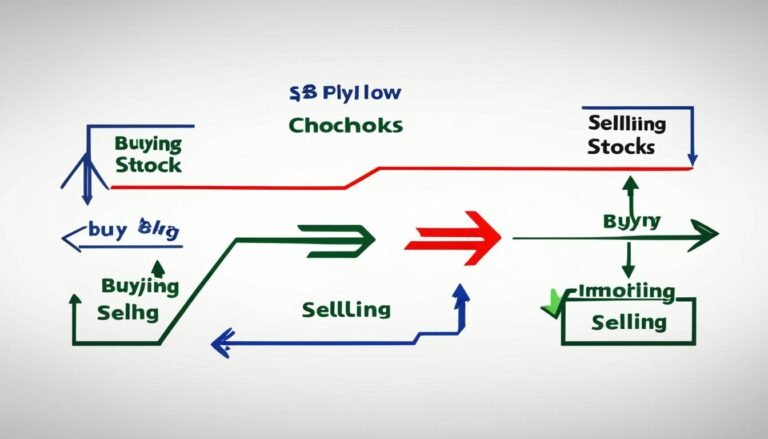Personal Loans for Single Parents: Managing Expenses & Unexpected Costs
Raising a child is a rewarding experience, but it can also be financially demanding. Single parents often face the additional challenge of managing expenses on a single income. Unexpected expenses, such as car repairs or medical bills, can swiftly derail a budget.
Single parents seeking financial relief find great value in the personal loan application process, including prequalification and pre-approval options.
This article explores how personal loans can be a tool for single parents to manage expenses and unexpected costs. We’ll discuss the different types of personal loans available, the factors to consider when prequalifying or going through the pre-qualification process for a personal loan, and how to use a loan responsibly to achieve financial stability for you and your family.
The Harsh Financial Realities Faced by Many Single Parents
According to Census Bureau data, over 23% of children in the United States live with a single parent – that’s nearly 1 in 4 children. For these families, led predominantly by single mothers, financial struggles are an unfortunate reality that impacts millions of households. Many single-parent households face difficulties affording necessities like food, housing, childcare, utilities, transportation, and medical care.
With limited incomes and minimal savings, Unexpected major expenses, such as medical emergencies, car repairs, or home maintenance issues, can quickly become overwhelming financial burdens. These unanticipated costs can rapidly deplete any limited savings and lead to mounting debt that feels impossible to overcome.
When a Personal Loan May Be the Answer
For the millions of single parents facing rising costs for basic living expenses or emergencies that drain their resources, a personal loan can provide much-needed financial relief and breathing room. However, before taking on additional debt, it’s crucial to carefully assess one’s full financial circumstances and explore all potential options, including:
- Government assistance programs like Temporary Assistance for Needy Families (TANF), Supplemental Nutrition Assistance Program (SNAP), Medicaid, etc.
- Non-profit organizations and charities offering emergency financial assistance
- Community support systems like religious organizations, single-parent groups, food banks
- Credit lines, low-interest credit cards, or borrowing from family if possible
Fully understanding the available financial resources empowers single parents to make informed decisions about whether and when a personal loan is necessary and beneficial for their situation.
Many lenders allow prospective borrowers to prequalify for a personal loan to get an initial preview of potential interest rates, fees, and loan amount ranges before formally submitting a full personal loan application. This pre-qualification step can help single parents better evaluate their options and make an informed decision about whether a personal loan is the right choice for their financial situation.
Choosing the Right Personal Loan: A Comprehensive Guide
Not all personal loan products are created equal. Interest rates charged can vary widely across lenders, from as low as 6% APR up to a very high 36% APR or more. Repayment loan terms, fees, penalties, and other fine print details also differ significantly – some lenders may employ predatory lending practices that can exacerbate existing financial difficulties.
To find the best personal loan offer for your needs as a single parent, it’s important to consider and understand these key factors:
Interest Rates
Securing a lower interest rate will save you significantly over the life of the loan. Those with higher credit scores will generally qualify for lower-rate offers. However, those with poor credit scores may only be approved for higher, less favorable rates.
Loan Terms
Longer repayment terms result in lower monthly payments, but you’ll end up paying much more interest over the entire loan period. Shorter terms reduce the total interest paid but require higher monthly installments that need to be budgeted for.
Credit Score
An excellent credit score of 720 or higher will help you secure the best available personal loan offers and terms. Lower scores below 680 will limit your options and likely result in higher interest rates being charged.
Charges
Many lenders charge upfront origination fees, late payment penalty fees, insufficient funds fees, and other charges, which can add up quickly. Read all disclosures and truth-in-lending documentation very carefully.
Reputable Lenders
It’s critical to thoroughly research and vet any potential lender. Check independent review sites, Better Business Bureau complaints and ratings, as well as research any history of regulatory actions or public accusations of unfair, predatory lending practices.
Creating a Repayment Strategy: Building Financial Resilience
Securing an affordable personal loan offer is only the first step. Developing a realistic, disciplined budget and repayment plan is crucial to successfully paying off the debt and avoiding falling into perpetual, long-term debt cycles.
Budget Diligently
Track all sources of income and expenditures meticulously using a budgeting app or spreadsheet. Identify any areas where spending can be reduced or eliminated, and allocate those funds towards loan repayments each month. Free apps like Mint can simplify budgeting tasks.
Seek Professional Guidance
Meeting with a non-profit accredited financial advisor or credit counselor can provide invaluable guidance and support. They can help analyze your full financial situation, create a personalized action plan for managing all debts, build a loan repayment schedule, and make recommendations for building emergency savings funds to avoid future issues.
Establish Financial Safety Nets
Commit to contributing to a dedicated interest-bearing savings account regularly, even if it’s just small amounts at first. Having an emergency fund can prevent the need for taking out additional high-interest loans or racking up credit card balances during the next time of financial hardship.
Explore Additional Income Streams
Look for ways to temporarily or permanently increase income, such as freelance gig work, a part-time second job, monetizing a skill or hobby, rental properties if possible, etc. Any surplus income generated can accelerate the rate of loan repayment.
By taking a proactive, strategic approach to loan repayment combined with building emergency savings buffers, single parents can improve their overall financial health, resilience, and security.
The Immense Impact of Effective Financial Management
The benefits of responsibly managing personal loan debts and overall finances extend far beyond just numbers on a balance sheet. For single parents, achieving an improved level of financial stability can have profound, life-changing positive impacts:
Reduce Stress and Anxiety: Studies show many single parents report high-stress levels directly caused by severe money worries and lack of savings. Proper financial education, planning, and management can alleviate this immense mental burden.
Improve Family Dynamics: Financial tensions, arguments about money, and the overall strain put on parent-child relationships can be greatly reduced with a stable financial foundation and outline for the future.
Create New Opportunities: With less economic uncertainty and unhealthy cycles of debt, single parents can invest more in their children’s education, extracurricular activities, skills development, and future career prospects.
Boost Self-Confidence: The journey of overcoming financial adversity through disciplined budgeting, saving, and determination builds immense personal pride, a massive sense of accomplishment, and self-assurance as a role model.
Frequently Asked Questions
What are the key factors single parents should consider before applying for a personal loan?
Before taking on additional debt, evaluate your current financial situation, calculate your ability to make monthly payments, and explore all available options – including government assistance, non-profit aid, and low-interest credit alternatives. If a personal loan is deemed necessary, compare interest rates, fees, and repayment terms across multiple lenders to find the most favorable option for your needs.
How can single parents ensure they choose the most trustworthy lender?
Research lenders extensively. Check online reviews, Better Business Bureau ratings, and any record of regulatory actions or consumer complaints. Additionally, watch for red flags like excessive fees, inflated interest rates, or high-pressure sales tactics, which could indicate predatory lending practices.
Are there any specific financial planning tips for single parents facing sudden unemployment while having an outstanding loan?
In the event of job loss, immediately contact your lender to discuss deferment, forbearance, or modified payment options. Building an emergency fund can prevent missed payments and potential defaults. Seeking guidance from a non-profit credit counseling agency or financial advisor can also provide valuable support in managing debt during periods of unemployment or reduced income.
Conclusion
Balancing the needs of your family with your financial resources can be a challenge for any parent, but single parents often face unique obstacles. Personal loans, when used thoughtfully, can provide a safety net and a path to financial security. By understanding your options and borrowing responsibly, you can ensure you have the resources to cover unexpected costs and provide a bright future for your children.







